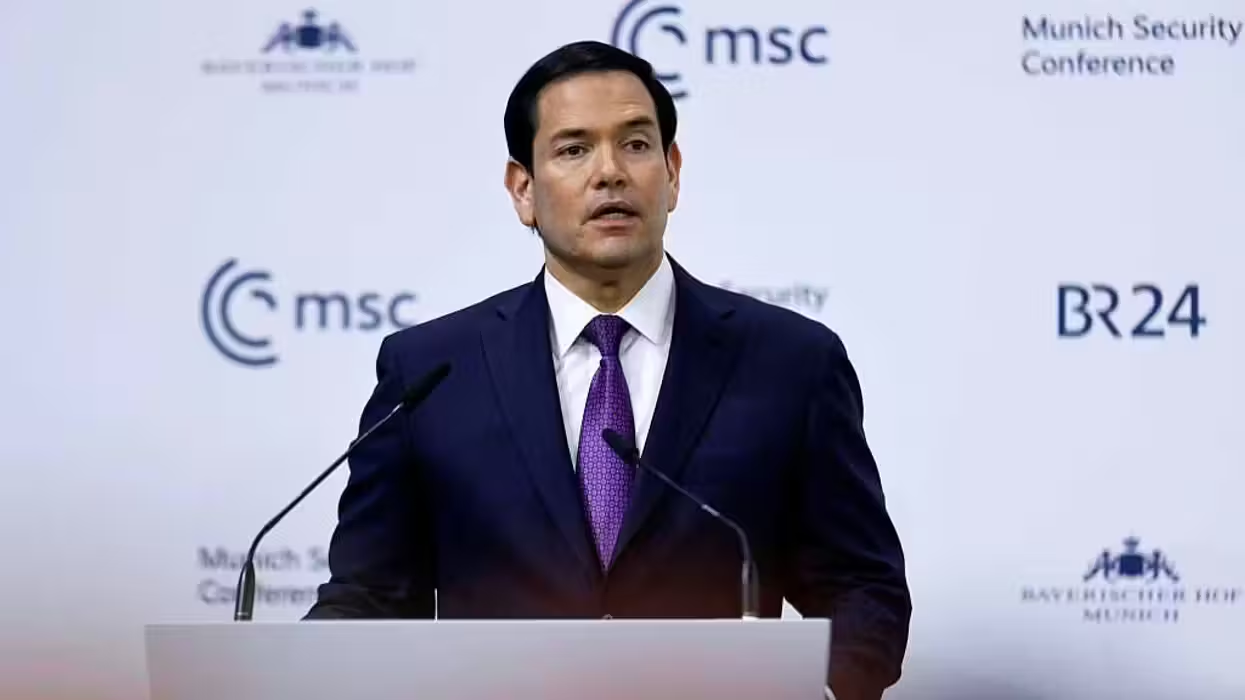
© 2026 Blaze Media LLC. All rights reserved.
Judge Makes Important Ruling About Government's Ability to Search an Entire Email Account
August 11, 2014
"Complies with the Fourth Amendment."
A federal judge on Friday reversed the decision of a magistrate judge who twice rejected government requests for a warrant to receive access to a suspect's entire email account.
 Photo credit: Shutterstock
Photo credit: Shutterstock
U.S. District Chief Judge Richard Roberts in Washington, D.C., did not agree with U.S. Magistrate Judge John Facciola's previous opinions that the application for the defendant's email "mounted to an overly broad search warrant."
Roberts though said in his opinion that "because the government’s application complies with the Fourth Amendment and the specific procedures for executing the warrant are permissible under Federal Rule of Criminal Procedure 41 and controlling case law, the magistrate judge’s order will be vacated, and the government’s application for a search warrant will be granted."
Facciola, according to background in the court opinion, denied the government's application for the search warrant because it "failed to clearly indicate that Apple was required to disclose e-mails in particular, and because probable cause had not been established for all of the emails requested in the search warrant."
The government's later application for the search warrant gave details about the suspect's alleged criminal activity and provided evidence as to why law enforcement thought email records could yield important information for the case.
Apple, which hosted the email account in question, according to Robert's decision, should not need to search through the account to find emails that would include only topics sought by the search warrant, because the government's requests complied with the Fourth Amendment and Rule 41. Roberts also noted that requiring Apple to search for the pertinent emails "would be unworkable and impractical."
"Moreover, requiring the government to train the electronic service provider’s employees on the process for identifying information that is responsive to the search warrant may prove time-consuming, increase the costs of the investigation and expose the government to potential security breaches," Roberts wrote.
In the matter, the Electronic Frontier Foundation asked that it be allowed to share information pertaining to the Fourth Amendment and how it applies to new technologies, but Judge Roberts also denied this request.
Roberts did acknowledge that searches through electronic data can involve risks to individual privacy.
"Given these competing interests, courts must strike the proper balance between ensuring that the government’s ability to effectively and efficiently investigate and prosecute crimes is implemented and assuring respect for individuals’ Fourth Amendment rights," Roberts wrote.
Peter Carr, a spokesman for the Justice Department, told the Wall Street Journal that it is "pleased the court ruled that the search warrant complies with the Fourth Amendment and that the procedures for executing the warrant are reasonable and permissible under the federal rules and case law.”
Lee Tien, a senior staff attorney for the Electronic Frontier Foundation, an advocacy group specifically devoted to defending digital privacy rights, told TheBlaze that the organization thinks the decision is "overly deferential to the government and isn’t really facing the differences between these kinds of ... very, very broad email warrants and physical searches."
Tien pointed out that even in physical searches, it is rare that only information on the person in question is seen by law enforcement. With emails, this becomes even more likely, unless you send a bunch of emails to yourself, Tien said.
"By definition, … everything in that account is not just about you but about someone else and all of their emails, to extent that they’re swept up in this," Tien said. "There’s a lot more people’s privacy at stake."
What's more, Tien said that the decision is mostly based on older court decisions that did not consider the issues that come along with the modern technological age. He also noted a couple of recent Supreme Court cases involving the search of digital devices that would counter some of the logic presented by Judge Roberts.
As for the burden of sifting through emails to find one's that would meet the warrant being placed on the service provider, Tien said that shouldn't be considered as the only other option.
"If EFF were involved, for instance, I guarantee one of things we’d be doing is talking about protocols or ways are other than black and white, if the government gets it all or provider" has to do the sifting, Tien said.
"It's not just a decision between those two things," he added.
(H/T: PC World, National Law Journal)
—
Front page image via Shutterstock.
Want to leave a tip?
We answer to you. Help keep our content free of advertisers and big tech censorship by leaving a tip today.
Want to join the conversation?
Already a subscriber?
more stories
Sign up for the Blaze newsletter
By signing up, you agree to our Privacy Policy and Terms of Use, and agree to receive content that may sometimes include advertisements. You may opt out at any time.
Related Content
© 2026 Blaze Media LLC. All rights reserved.
Get the stories that matter most delivered directly to your inbox.
By signing up, you agree to our Privacy Policy and Terms of Use, and agree to receive content that may sometimes include advertisements. You may opt out at any time.






